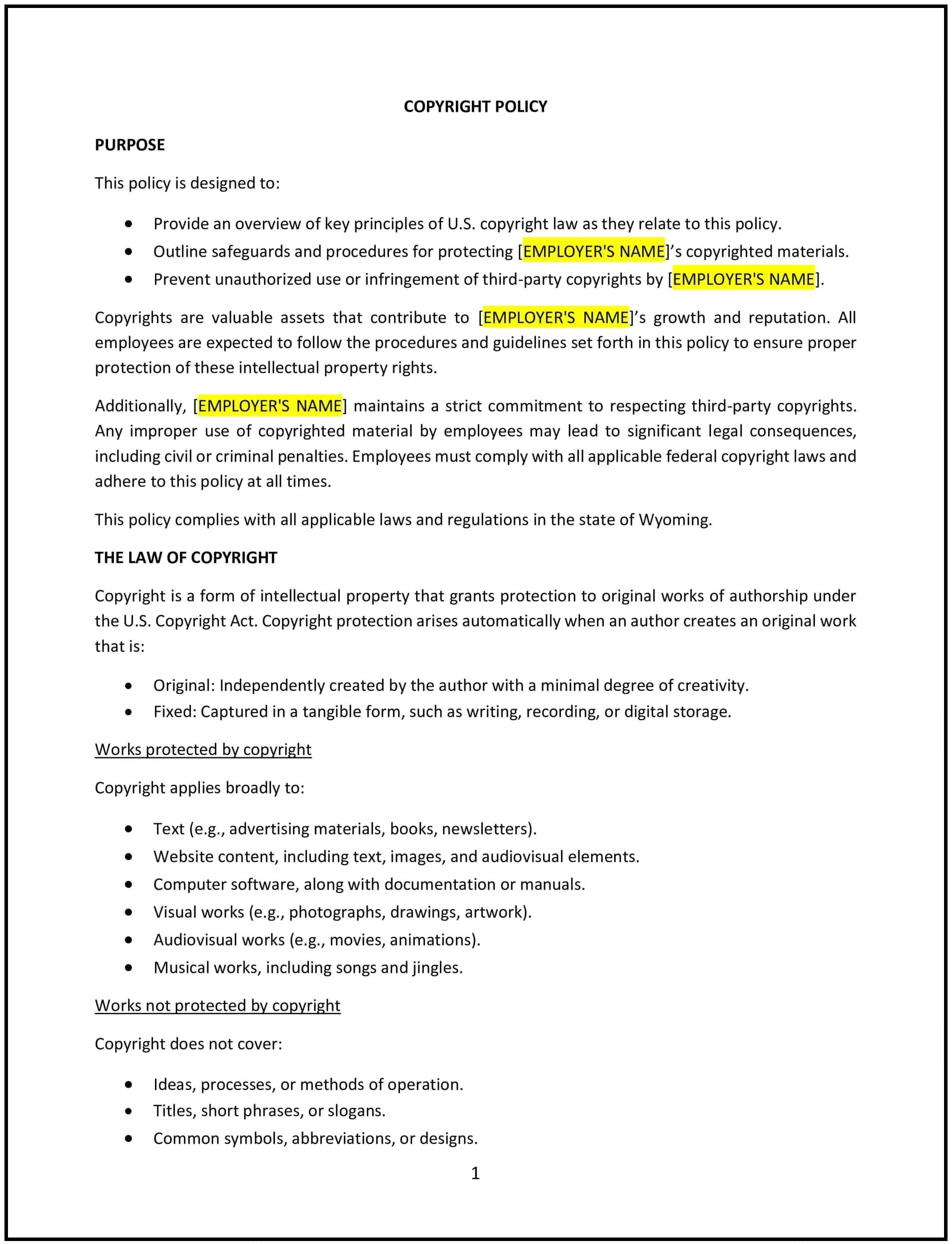Got contracts to review? While you're here for policies, let Cobrief make contract review effortless—start your free review now.

Customize this template for free
Copyright policy (Wyoming)
In Wyoming, a copyright policy helps businesses protect intellectual property (IP) and support compliance with copyright laws. This policy is particularly valuable for organizations in industries like education, technology, and media, where the creation and use of copyrighted material are common.
This policy outlines the guidelines for using, sharing, and protecting copyrighted material, supporting adherence to U.S. copyright laws and minimizing the risk of legal disputes.
How to use this copyright policy (Wyoming)
- Define copyrighted materials: Clearly identify what constitutes copyrighted material, such as written content, images, videos, software, or proprietary designs. Tailor the definitions to include materials relevant to your business operations.
- Establish usage guidelines: Specify how employees can use copyrighted materials, including any necessary permissions, licensing agreements, or attribution requirements.
- Outline employee responsibilities: Detail the steps employees must take to avoid copyright infringement, such as verifying permissions before using external materials or adhering to fair use guidelines.
- Include reporting procedures: Provide a process for reporting suspected copyright violations, whether internal or external, to ensure timely investigation and resolution.
- Improve compliance: Align the policy with U.S. copyright laws and Wyoming-specific business practices to improve compliance and protect company assets.
Benefits of using a copyright policy (Wyoming)
A comprehensive copyright policy offers several benefits for Wyoming businesses:
- Protects intellectual property: Safeguards proprietary content and designs from unauthorized use or reproduction.
- Improves compliance: Supports adherence to U.S. copyright laws and minimizes the risk of legal disputes or penalties.
- Encourages accountability: Clearly defines employee responsibilities, fostering a culture of respect for intellectual property rights.
- Mitigates risks: Reduces the likelihood of accidental copyright infringement that could harm the business.
- Adapts to industry needs: Addresses unique challenges in Wyoming’s key industries, such as education or media, where copyrighted materials are frequently used.
Tips for using a copyright policy (Wyoming)
- Educate employees: Provide training on copyright basics, fair use, and company-specific guidelines to ensure understanding and maximize compliance.
- Update regularly: Review the policy periodically to align with changes in copyright laws or business needs.
- Monitor usage: Use tools or systems to track the use of copyrighted materials within the organization.
- Foster collaboration: Encourage employees to work with legal or compliance teams when questions about copyright usage arise.
- Promote awareness: Share the policy widely within the organization and ensure it is easily accessible to all employees.